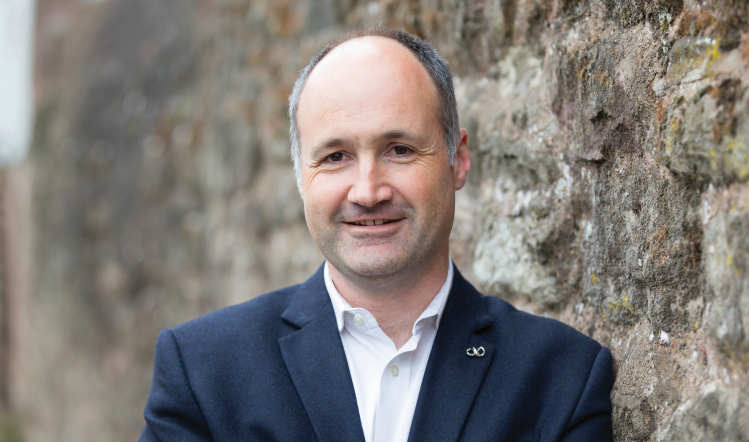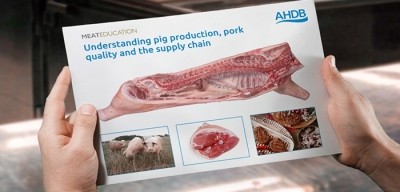Learning provider profile
NMiTE: The new kid in town

A wholly new university hasn’t opened in the UK in 40 years. Despite a wave of institutions earning university status in the 1990s, no new places of higher education have been founded since The Open University started distance learning in 1969. With the arrival of Hereford-based New Model in Technology & Engineering (NMiTE) that drought will end.
Officially opening its doors in September 2020, NMiTE, which is backed by engineering businesses, Herefordshire Council, Olin College of Engineering and the UK Government, will offer a completely new model in the higher education sector, centred on project-based learning – as opposed to the traditional classroom approach employed in the majority of institutions around the UK.
Students on the course take part in an accelerated master’s degree, taking place over three years instead of the usual five. During that time, the students participate in 21 industry-based projects, two community projects and two industry-based placements – the last of which is at the end of their final year, comprising a 16-week-long master’s project with a company. This fresh approach means graduates leave the course with a portfolio of work and real-world experience in the profession they are entering.
Growing demand from the UK’s manufacturing industry for new talent prompted the launch of the accelerated course in engineering, as head of partnerships Toby Kinnaird explains.
Identifying a niche
“The decision to focus on engineering arose following many conversations with vice chancellors at other universities. Their advice was to stay niche, do something very well and focus on an area where the need was greater – and that is engineering. As a sector, engineering is low on numbers and will continue to be as our world becomes more technical.”
The course itself isn’t wholly focused on training for food and drink manufacturing engineers, but instead covers a complete package of skills training that can be applied to all parts of the industry. However, learners are free to choose projects within food and drink and to work on and take placements with a food manufacturer as part of their qualification.
“It’s not specific to food manufacturing, but it is probably more relevant than a traditional siloed course like mechanical engineering or electrical engineering, as we cover such a wide area,” says Kinnaird. “Just looking through the curriculum, I’d say at least two-thirds of it is directly relevant to food manufacturing.
“We’ve got engineering, materials and processes, but we’ve got specific modules around dynamics-integrated systems and a lot on statistical analysis, which would be more useful in the food manufacturing sector.”
Another benefit for students looking to enter different manufacturing sectors is the opportunity to learn new ways of working and thinking outside the sphere of food and drink.
Broad spectrum on knowledge
“Students could be working on a food manufacturing project alongside other students working on a non-food manufacturing project, so it’s really down to what partner the individual students will be working with at the time,” Kinnaird adds. “More and more these days, manufacturers are looking for engineers with that broad spectrum of knowledge – not just in one key area – because the equipment they’re using requires them to have several bases of expertise. That integrated approach [means] they can apply the whole toolkit to problems.”
For course graduates looking to enter the food and drink sector on completion of their master’s, you’d be hard-pressed to find an industry more eager to employ the next generation of engineers. From major players, such as drinks giant Heineken and meat processor Avara Foods, to several small and medium-sized manufacturers, Kinnaird says there’s no shortage of employers that have shown interest in NMiTE.
With employers voicing their support for NMiTE and champing at the bit to secure graduates from the course, the learning provider has made sure to work with businesses, so that its learners not only secure a job after the completion of their training, but start a fulfilling and life-long career.
“There’s a local firm called Hereford Contract Canning, which is looking to expand and put in a second line, and they are hoping to employ our graduates and provide us with projects,” says Kinnaird.
‘Starting your career as an engineer’
“You’re not just coming here to do a three-year master’s, you’re starting on your career as an engineer. We want them to come back and learn with us, as well as existing employees at those firms to come and learn with us.”
To support the continuing development of its graduates, NMiTE has partnered with food manufacturers in the area to build continuing professional development (CPD) courses, open to food industry professionals looking to top up skills.
“We’re working with companies like Avara on their lean manufacturing programme. We’re working with Heineken on a leadership and management CPD and we’re also looking at developing CPD in areas like future skills and trying to define what the future of work is and how that will impact our learners and their employers over time.”
Of course, all of this will account for little if the course fails to attract the required student numbers. However, NMiTE has already seen a huge wave of interest – more than enough to run the course four times over.
“We’ve had a really healthy pipeline of interested students, and those students aren’t necessarily young people – we also have mature students,” says Kinnaird. “What we are offering is a life-long learning experience, so people of all ages can apply.
“We’re still going through validation, but we’ll be starting the recruitment drive very soon. However, we’ve already had more than 400 expressions of interest, so we’re well on the way to filling our first 50 places on our pioneer cohort and for the September 2020 intake.”

















